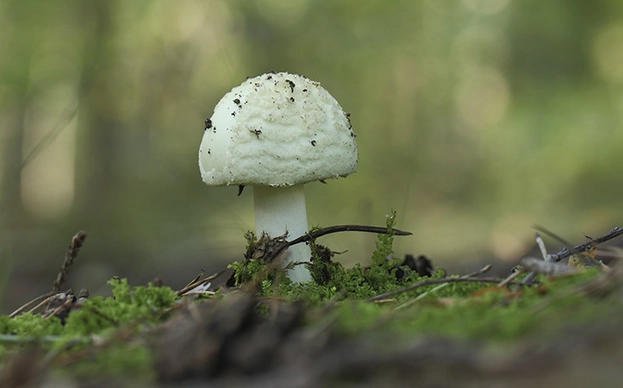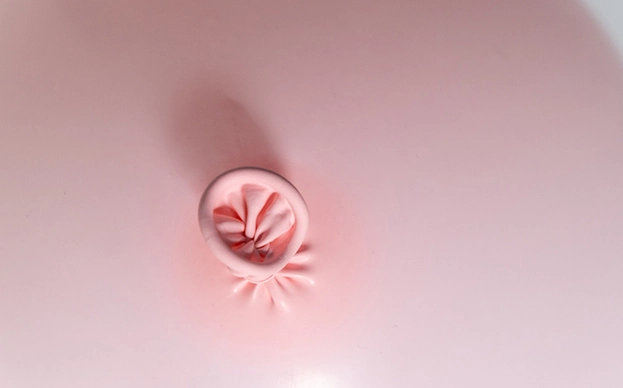
Give this a try... Google 'masturbation and guilt' and prepare to be amazed. The search engine will return almost six million results on the topic: "How to masturbate without guilt", "Do you feel guilty when you masturbate", "Guilty masturbation", "Why do I feel guilty after masturbating", and so on ad infinitum. We live in the 21st century, porn is within reach of anyone with a mobile phone; sex education has changed and there are specific shops where you can buy all kinds of toys to enjoy your body and reach orgasm (we have one!). Nevertheless, we still drag along fears rooted in myths and centuries of repression. We don't want to point fingers, but religion, often in collusion with the authorities and even with doctors, has insisted that touching oneself is a sin — God knows why! When it comes to threats, burning for eternity in the flames of hell isn't a bad one at all. Nevertheless, other more daunting punishments have been devised for those who are yet to be fazed by this firey prospect. For example, your hair will fall from your head — only for it to regrow on the palms of your hands; your face will fill with spots, but you won't be able to see it anyway because you'll be blind!
As we've mentioned, doctors were quick to endorse this discourse, citing cardiac abnormalities, spinal weakness, pulmonary phthisis, epilepsy, cerebral disorders, and even a particular type of syphilis. All this for indulging in the worst of vices (with the exception of anal sex, of course — that's the devil itself!). Samuel-Auguste Tissot was a notable 18th-century Swiss physician who in 1760 published 'L’Onanisme', his own comprehensive medical treatise on the purported ill-effects of masturbation. Inspired by a pamphlet widely distributed in London in the early 18th century entitled Onania: or, the heinous sin of self-pollution, Tissots provides a long list of maladies he claims to be caused by the sin of satisfying one's own needs: “A noticeable loss of strength, memory, and even reason. Blurred vision. Nervous disorders. Gout and rheumatism. Weakening of the organs of generation. Blood in the urine. Appetite problems. Headache.” Basically, anything that befalls a person — from toothache to a sprain — was blamed on them touching their private parts too vigorously.
For men like Tissot, the Church and their many collaborators, teaching people to hate their own bodies was the key to controlling their behaviour. Sexual pleasure was only reserved for procreation within marriage, and your fragile body insisted on getting aroused; therefore — it was the enemy. Guilt is born out of this struggle between nature and (bad) education. Dozens of lies sustain this guilt, lies which, as we already mentioned — have been completely debunked by modern science and medicine.
What are the most common lies about masturbation?
If you've made it this far, you may have fallen into the trap of thinking that lies about masturbation are a thing of the past. Oh, blissful innocence! Nothing could be further from the truth. Even today, Catholic news websites take it upon themselves to indoctrinate by asserting things like: "the habitual practice of masturbation leads to serious nervous imbalances", "the vice of masturbation is the cause of many failures in education and in sport", "the vice of masturbation leads to premature ejaculation in marriage" and, most dangerously (for them at least), "masturbation can lead to loss of faith". What are the most common lies surrounding masturbation? What are these myths that we've all heard at one time or another?
Masturbation makes you fat
We don't know where this claim came from, but the fact is that masturbation has absolutely no effect on body weight. It's neither fattening nor slimming; the exercise involved is minimal and, unless you run a marathon afterwards, your weight will stay the same.
Masturbation causes acne
This is one of our favourites. How did it get so widespread? Well, it was intended to discourage teenagers from masturbating, and teenagers tend to get spots. So, that white-headed zit became the incontrovertible evidence of your sins. The fact is that spots appear during puberty due to changes in hormone levels, and although masturbation may temporarily increase testosterone levels, it's not enough of an increase to affect the skin. Therefore, no — masturbation does not cause acne. In fact, it reduces stress, has anti-inflammatory effects and improves skin health.
Masturbation causes premature ejaculation
Let's be clear from the outset — masturbation does not cause premature ejaculation! What is true is that many adolescents, whether it's because of their upbringing, feelings of guilt or a fear of getting caught, learn to masturbate in order to finish and ejaculate as soon as possible. In other words, rapid ejaculation is a learned response. It can be changed and, in any case, it's likely to have its roots in sex education. If you learn from being a teenager that masturbation is natural and you are allowed to enjoy your moments of intimacy in peace, your body won't learn to ejaculate quickly so as not to be caught red-handed by your mother.
Masturbation makes your penis longer
There are several versions of this urban legend — from masturbation enlarging the penis to shrinking or bending it. None of this is true. For better or for worse — masturbation has no effect on penis shape or size.
Masturbation causes hair loss
Another age-old fallacy. This is what a leading dermatologist has to say: "Hair loss is caused by a high level of dihydrotestosterone (DHT), while sexual acts are triggered by testosterone". Both are male sex hormones, but they're different. A person can have high levels of DHT and low levels of testosterone, and vice versa". So no — masturbation has nothing to do with hair loss either.
Masturbation is linked to infertility
Again, let's ask the experts what they think.. According to the Mayo Clinic, “Frequent masturbation isn't likely to have much effect on your fertility. Some data shows that optimum semen quality occurs after two to three days of no ejaculation. But other research suggests that men who have normal sperm quality maintain normal sperm motility and concentrations even with daily ejaculation.” In fact, according to sexologist and lecturer at the Autonomous University of Madrid, Ruth González Ousset, "when a man is trying to become a father, it is recommended that he does not give up masturbation and it is best to do it every two or three days to renew sperm and increase the chances of having children". There you go.
The only certainty is that masturbation is natural, healthy and pleasurable, and that neither doctors nor scientists have been able to find that it has any negative effects on the health of the body; as for the soul, well, that depends on who you entrust yours to!












